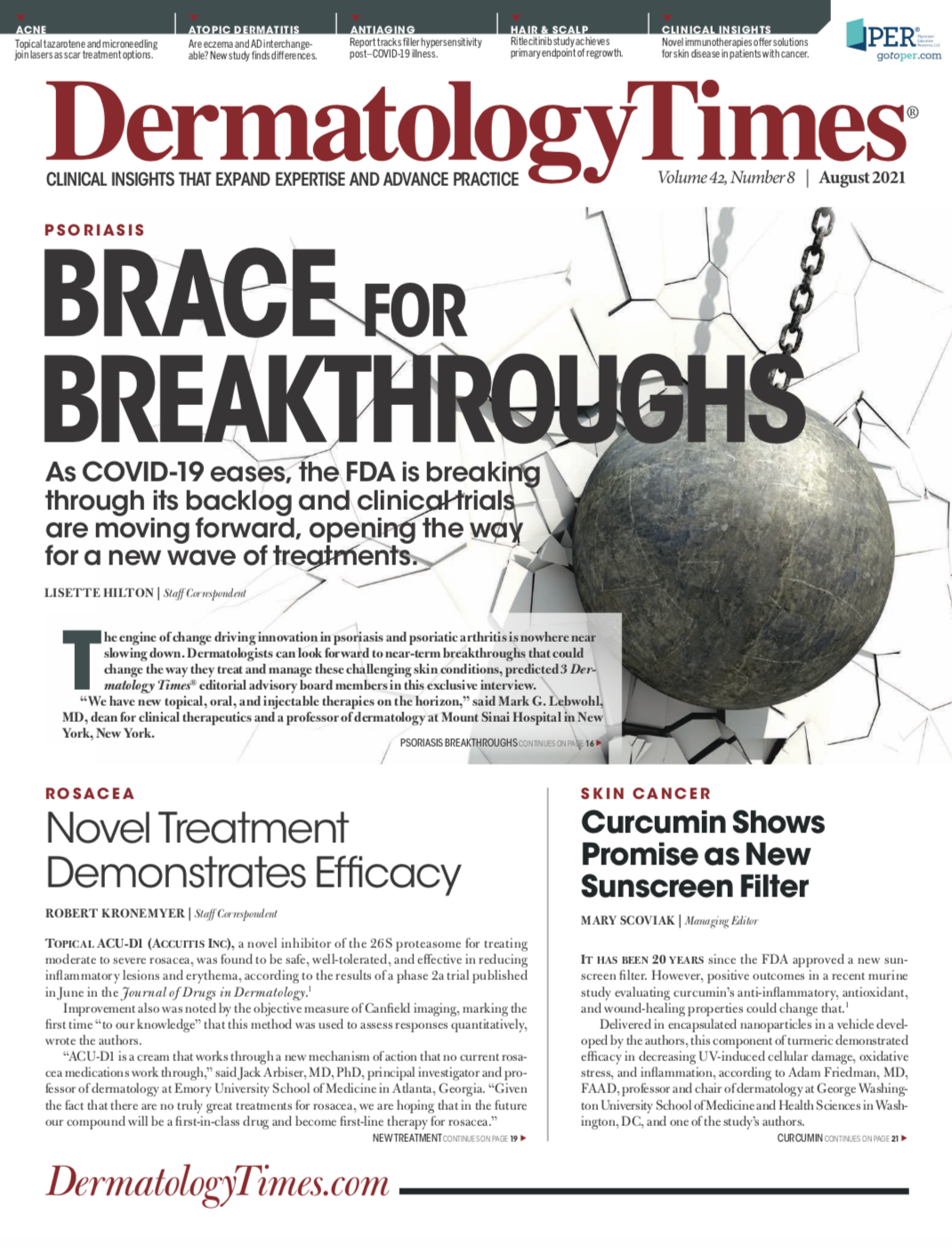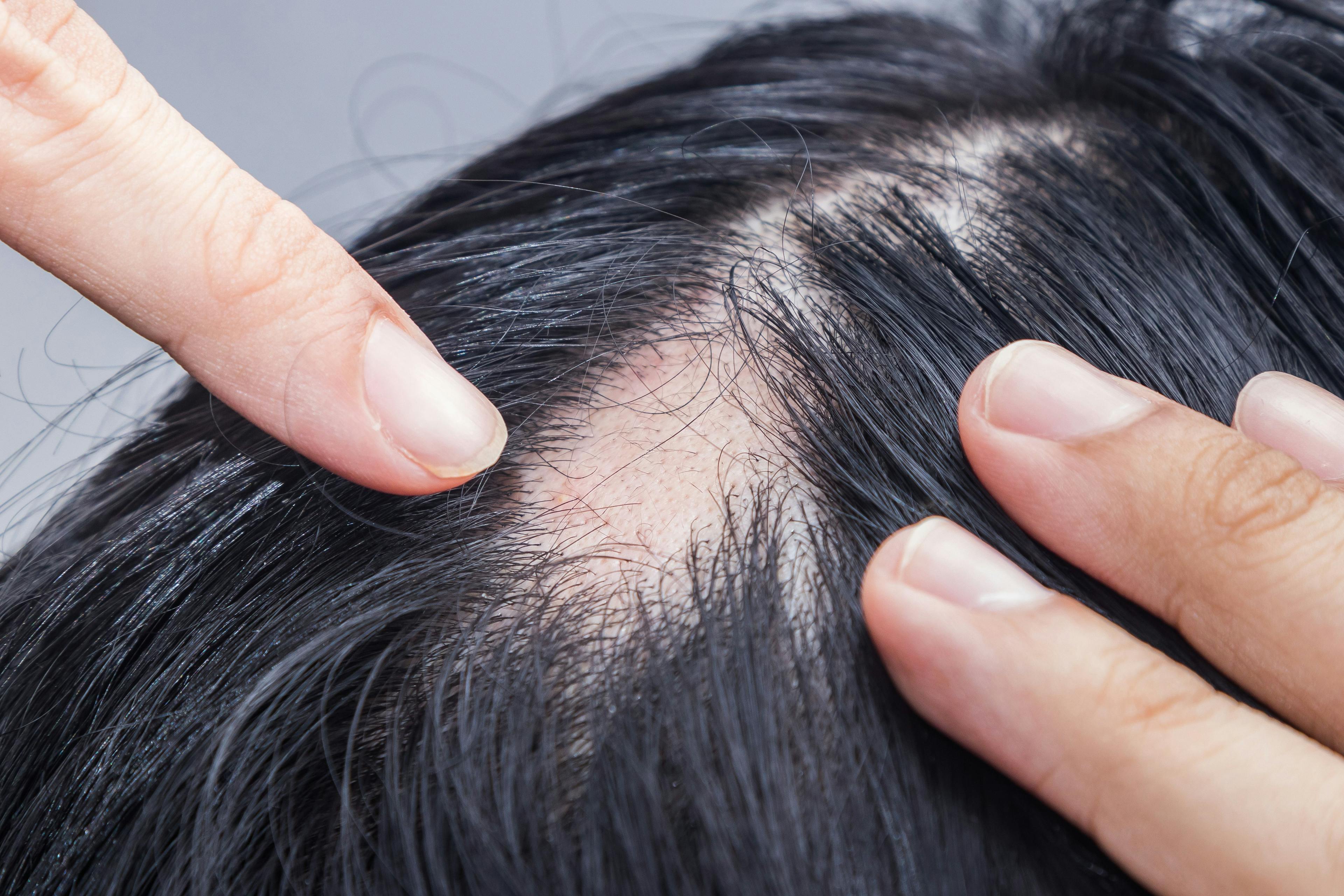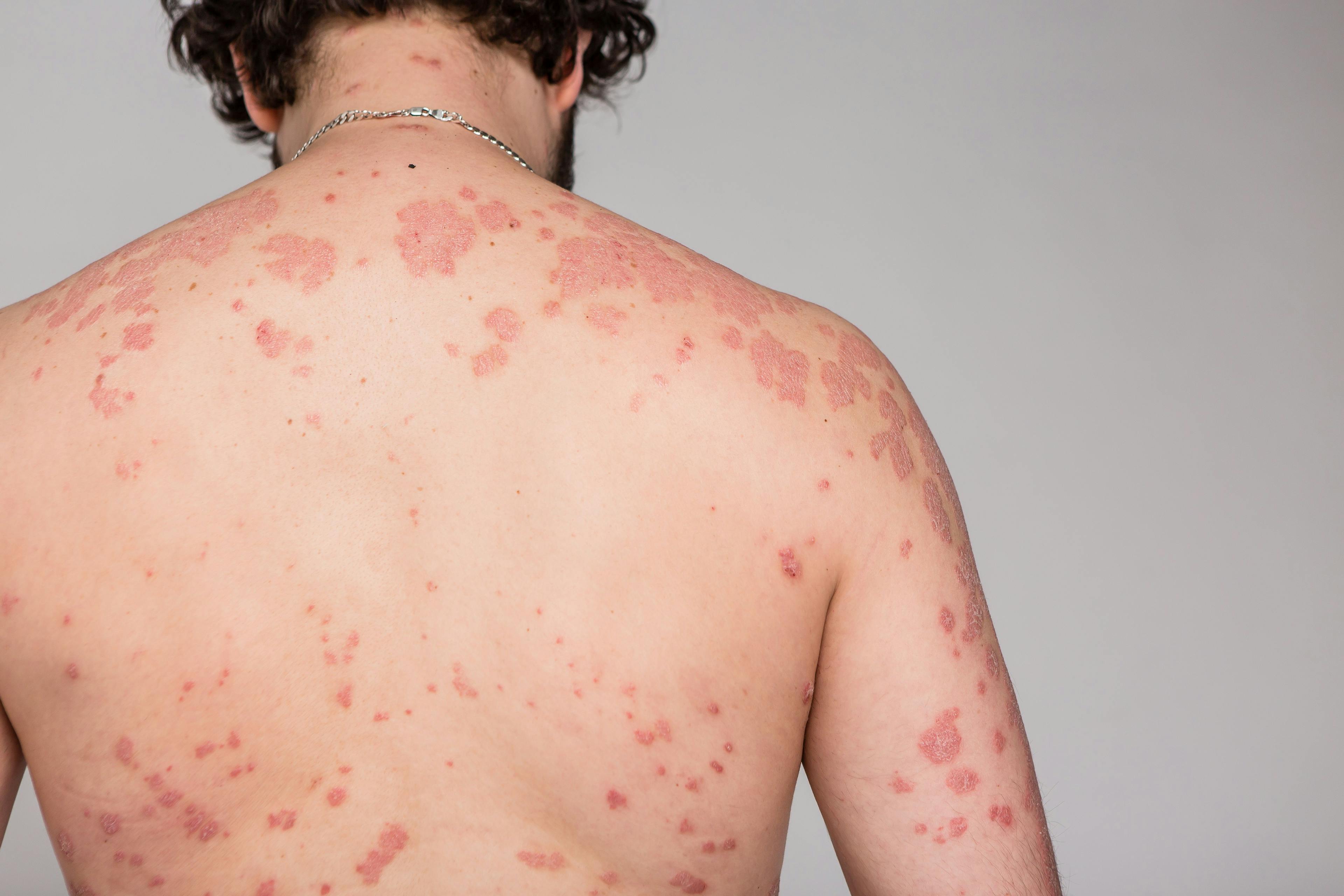- Acne
- Actinic Keratosis
- Aesthetics
- Alopecia
- Atopic Dermatitis
- Buy-and-Bill
- COVID-19
- Case-Based Roundtable
- Chronic Hand Eczema
- Chronic Spontaneous Urticaria
- Drug Watch
- Eczema
- General Dermatology
- Hidradenitis Suppurativa
- Melasma
- NP and PA
- Pediatric Dermatology
- Pigmentary Disorders
- Practice Management
- Precision Medicine and Biologics
- Prurigo Nodularis
- Psoriasis
- Psoriatic Arthritis
- Rare Disease
- Rosacea
- Skin Cancer
- Vitiligo
- Wound Care
Publication
Article
Dermatology Times
Ritlecitinib Delivers Topline Results in Alopecia Areata Study
Author(s):
Ritlecitinib, an investigational covalent kinase inhibitor, achieved its primary endpoint and demonstrated statistically significant efficacy compared to placebo in treating alopecia areata.
Pfizer, an American multinational pharmaceutical and biotechnology corporation, recently announced positive results from its phase 2b/3 clinical trial (ALLEGRO; NCT03732807) investigating once-daily oral ritlecitinib as a potential treatment of alopecia areata (AA), with ritlecitinib 30 mg and 50 mg achieving the study’s primary endpoint.1
Ritlecitinib is the first drug in a new class of covalent kinase inhibitors that are highly selective for Janus kinase 3 (JAK3) and members of the tyrosine kinase expressed in hepatocellular carcinoma (TEC) kinase family. Additionally, clinical studies have shown ritlecitinib to block the signaling of molecules and immune cells thought to contribute to hair loss in people with AA, according to a press release.
Most recently, ritlecitinib was granted the FDA’s Breakthrough Therapy designation in September 2018 for the treatment of AA. The drug is also currently being studied as a potential treatment for rheumatoid arthritis, Crohn’s disease, vitiligo, and ulcerative colitis.
The ALLEGRO study was a randomized, placebo-controlled, double-blind clinical trial that enrolled 718 patients ages 12 years and older with AA. Study participants were required to have 50% or more hair loss of the scalp, including patients with alopecia universalis, alopecia totalis, and were currently experiencing an episode of AA that had lasted between 6 months to 10 years.
Patients were randomized to receive either ritlecitinib 50 mg or 30 mg—with or without 1 month of initial treatment with ritlecitinib 200 mg—ritlecitinib 10 mg, or placebo.
The primary endpoint was a proportion of patients with scalp hair regrowth in response to ritlecitinib treatment based on an absolute Severity of Alopecia Tool (SALT) score of less than or equal to 20 at week 24.
The study met the primary endpoint with a statistically significantly greater proportion of ritlecitinib 30 mg or 50 mg patients who had 20% or less scalp hair loss at 24 weeks compared to those treated with placebo.
In the 24-week extension period, all study participants who were initially randomized to receive ritlecitinib continued the same regimen, meanwhile participants who received placebo during the initial 24 weeks were given either 200 mg of the drug for 4 weeks followed by 50 mg for 20 weeks, or 50 mg for 24 weeks.
A 10 mg dosing arm was also included in the study, which was not tested for statistically significant efficacy compared to placebo and was instead assessed for dose-ranging.
The safety profile for ritlecitinib was consistent with previous studies. The study found the percentage of patients with adverse events (AEs), serious AEs (SAEs), and those who discontinued due to AEs was similar across all treatment arms. The most common AEs included nasopharyngitis, upper respiratory tract infection, and headache. There were no major adverse cardiac events (MACE), deaths or opportunistic infections in the trial.
Eight patients treated with ritlecitinib developed mild to moderate shingles (herpes zoster). There was also 1 case of pulmonary embolism in the ritlecitinib 50 mg group, which occurred on day 169. There were 2 cases of breast cancer reported in the ritlecitinib 50 mg group, which occurred on day 68 and day 195. Both participants were discontinued from the study, according to the release.
“We are pleased by these positive results for ritlecitinib in patients with alopecia areata, a devastating and complex autoimmune disease for which there are currently no FDA or European Medicines Agency approved treatments,” said Michael Corbo, PhD, chief development officer, Inflammation & Immunology, Pfizer Global Product Development. “We look forward to bringing this potential new treatment option to patients living with alopecia areata as soon as possible.”
Reference:
1. Pfizer announces positive top-line results from phase 2b/3 trial of ritlecitinib in alopecia areata. BioSpace. Press release. August 4, 2021. Accessed August 4, 2021. https://www.biospace.com/article/pfizer-announces-positive-top-line-results-from-phase-2b-3-trial-of-ritlecitinib-in-alopecia-areata/

Newsletter
Like what you’re reading? Subscribe to Dermatology Times for weekly updates on therapies, innovations, and real-world practice tips.




























